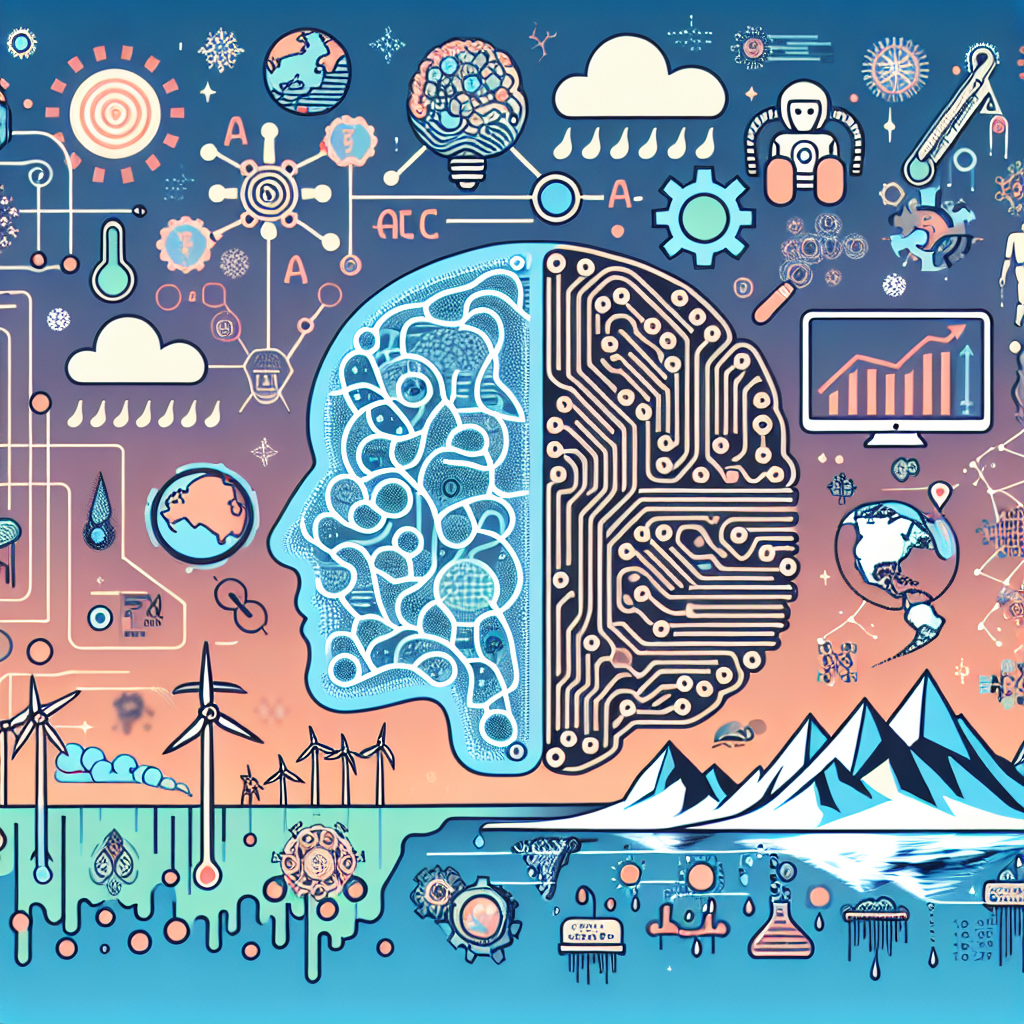Artificial Intelligence (AI) platforms have become increasingly important tools in the fight against climate change. These platforms leverage the power of machine learning and data analytics to help organizations and governments make informed decisions that can reduce greenhouse gas emissions, improve energy efficiency, and mitigate the impact of climate change.
One of the key ways in which AI platforms are being used to address climate change is through the analysis of large datasets. By processing massive amounts of data from sources such as weather satellites, environmental sensors, and energy consumption records, AI platforms can identify patterns and trends that human analysts may overlook. This can help researchers better understand the complex interactions between human activity and the environment, leading to more effective strategies for reducing carbon emissions and adapting to a changing climate.
AI platforms are also being used to optimize energy consumption and reduce waste. For example, smart grid systems that use AI algorithms can predict energy demand and adjust power generation accordingly, leading to more efficient use of renewable energy sources and lower overall carbon emissions. Similarly, AI-powered systems can help businesses and consumers optimize their energy usage by analyzing patterns of consumption and recommending ways to reduce waste.
In addition, AI platforms are being used to monitor and manage natural resources more effectively. For example, AI algorithms can analyze satellite imagery to track deforestation, monitor wildlife populations, and identify areas at risk of environmental degradation. This information can help policymakers make more informed decisions about land use and conservation efforts, leading to better protection of vital ecosystems and biodiversity.
Furthermore, AI platforms can help organizations adapt to the impacts of climate change. By analyzing historical weather data and predicting future climate trends, AI algorithms can help businesses and governments prepare for extreme weather events, sea level rise, and other consequences of a changing climate. This information can inform strategies for building resilient infrastructure, protecting vulnerable communities, and reducing the overall impact of climate change on society.
Overall, AI platforms have the potential to revolutionize the way we address climate change by providing powerful tools for data analysis, optimization, and decision-making. By harnessing the power of AI, we can develop more effective strategies for reducing carbon emissions, protecting natural resources, and building a sustainable future for generations to come.
FAQs:
Q: How can AI platforms help reduce greenhouse gas emissions?
A: AI platforms can help reduce greenhouse gas emissions by analyzing data to identify sources of emissions, optimizing energy consumption, and developing strategies for reducing waste and increasing efficiency.
Q: Can AI platforms help businesses adapt to climate change?
A: Yes, AI platforms can help businesses adapt to climate change by analyzing historical weather data, predicting future climate trends, and informing strategies for building resilient infrastructure and protecting vulnerable communities.
Q: Are there any risks associated with using AI platforms to address climate change?
A: While AI platforms offer many benefits for addressing climate change, there are also risks such as data privacy concerns, algorithm bias, and the potential for unintended consequences. It is important to carefully consider these risks and develop safeguards to mitigate them.

